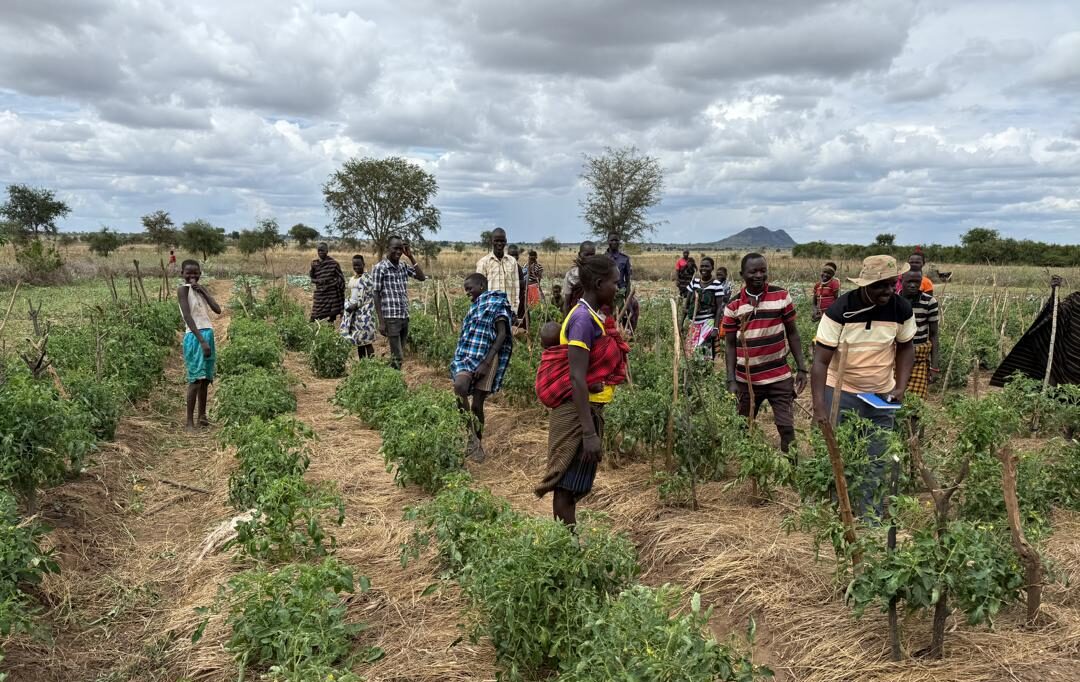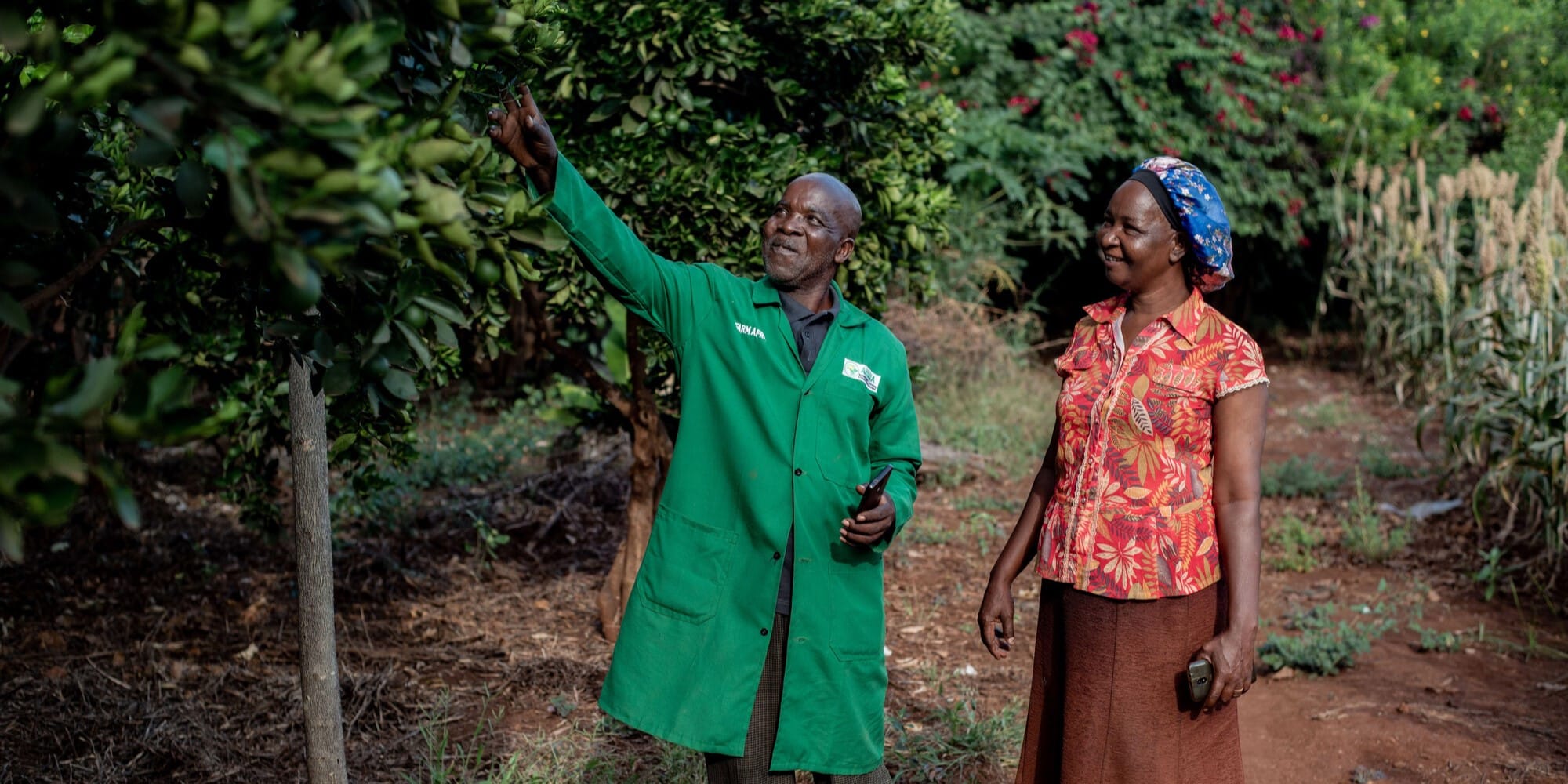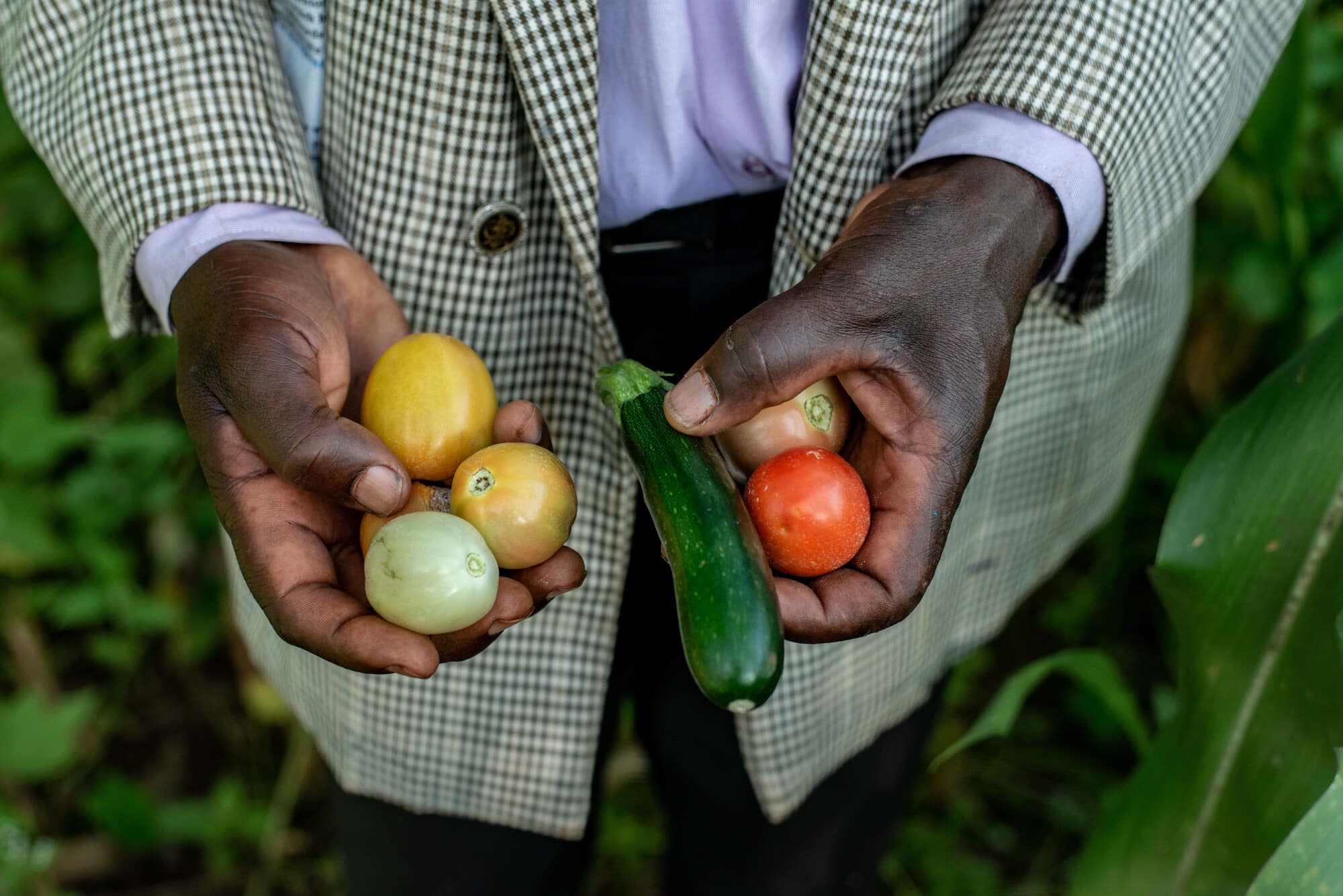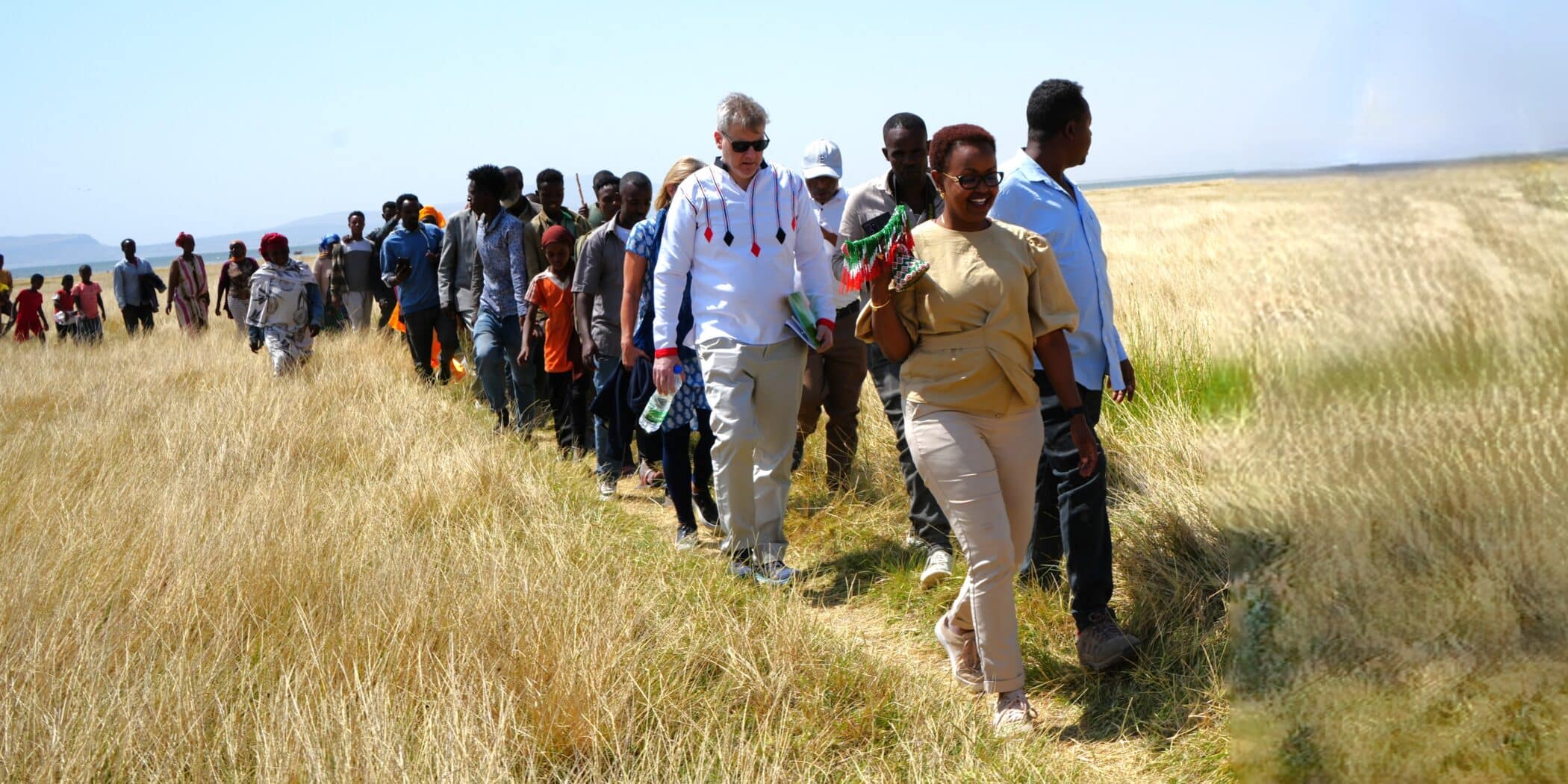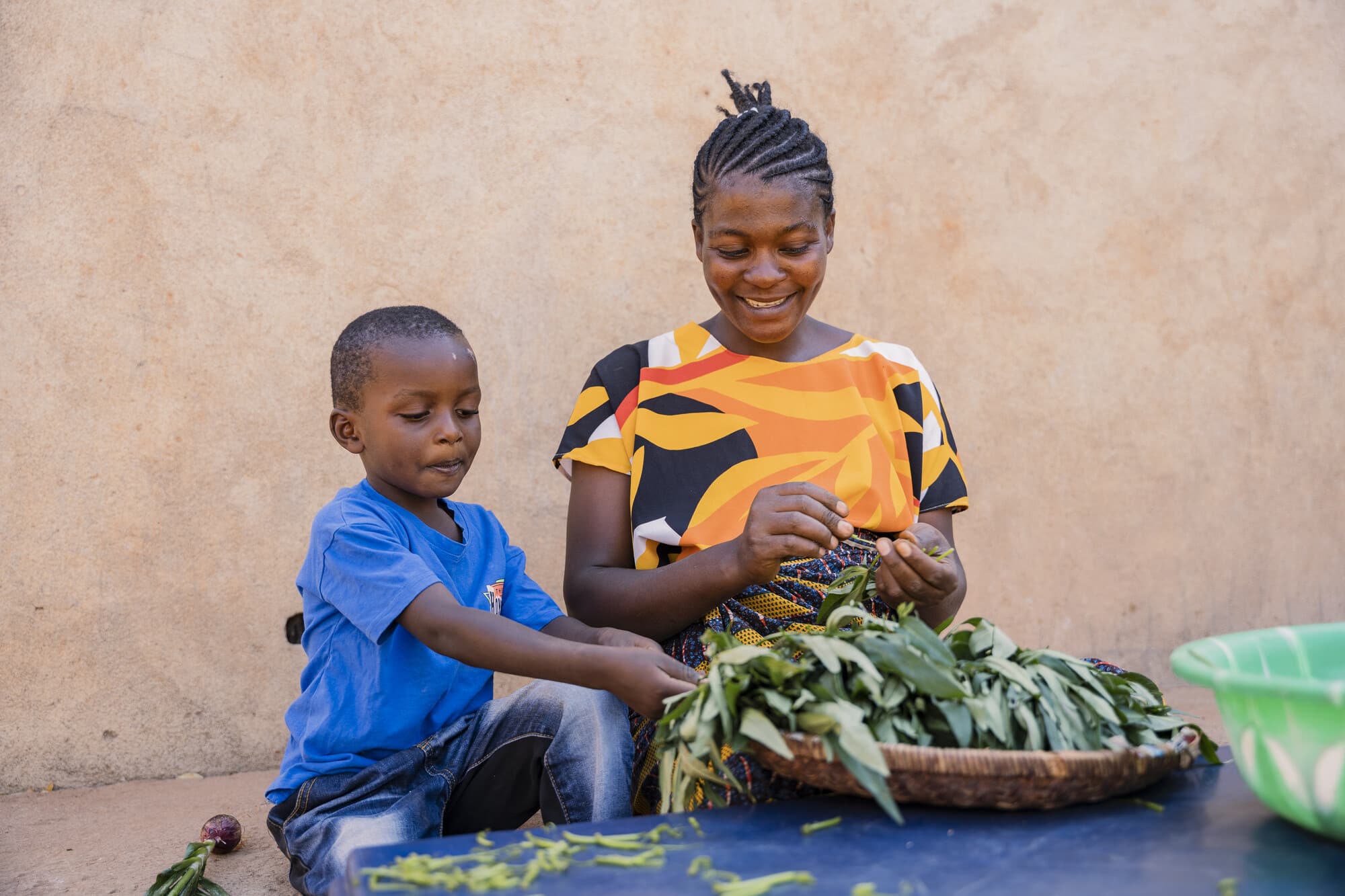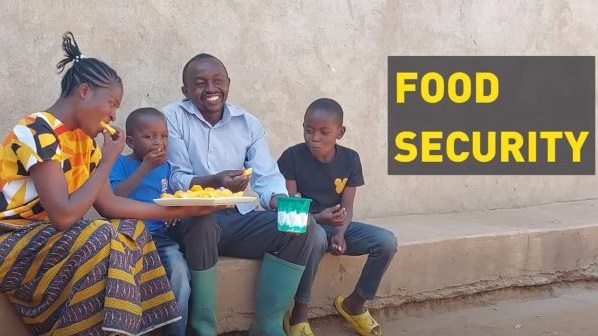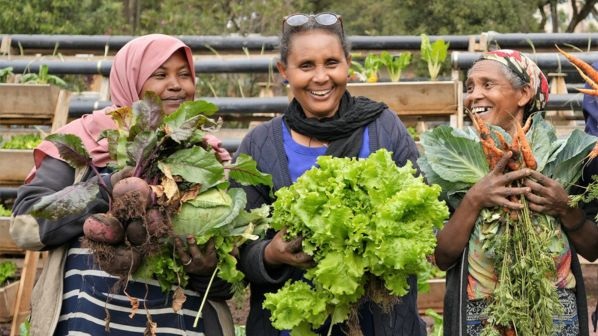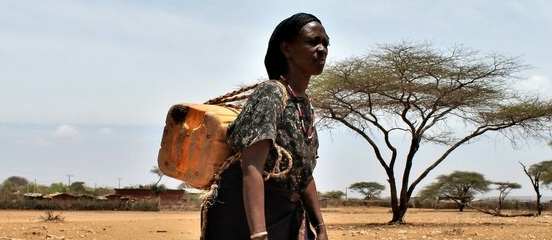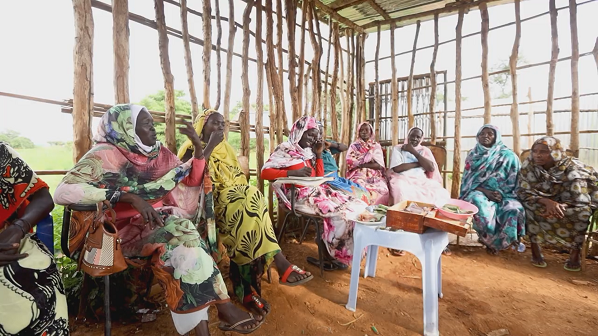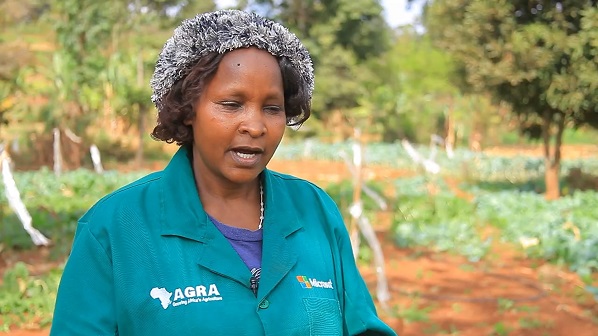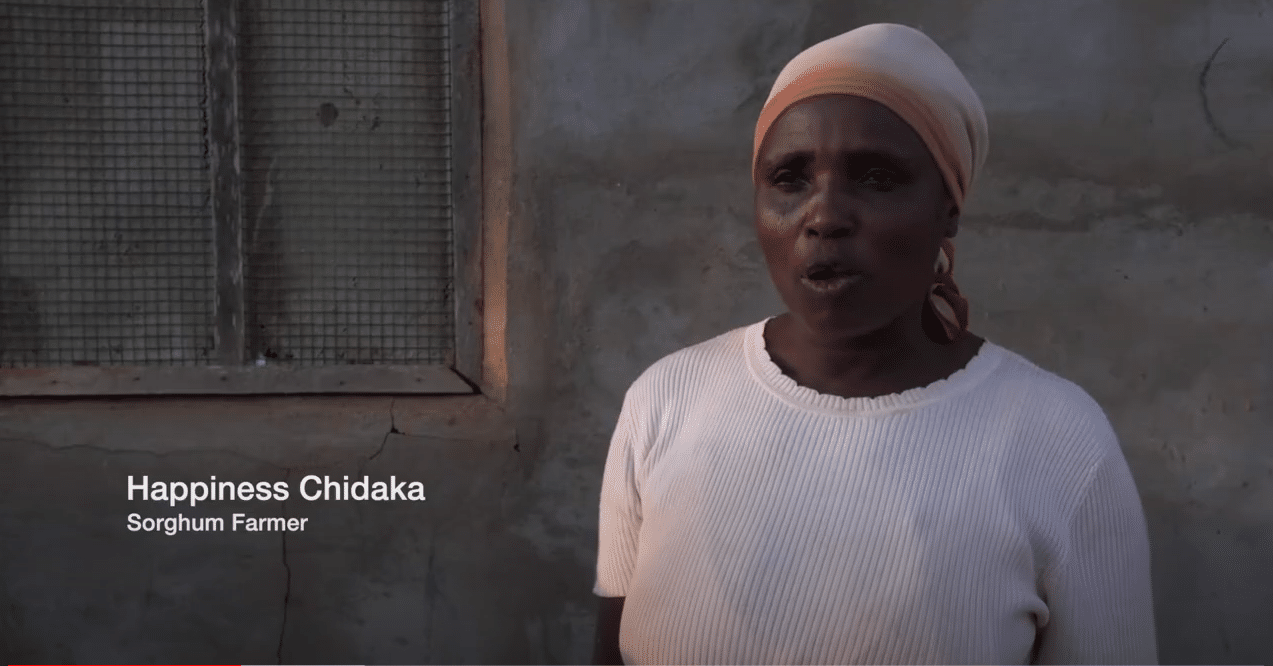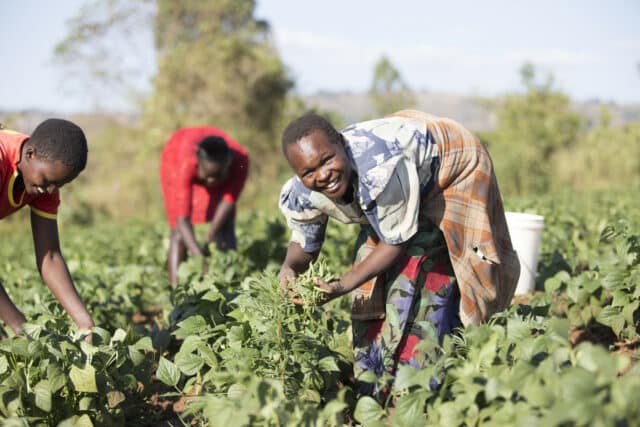The problem
In eastern Africa extreme weather, poverty and a growing population threaten farmers’ ability to grow enough food for a nutritious diet.
Recent challenges such as the COVID-19 pandemic in 2020 and war in Ukraine added to the disruption of the global supply chain exacerbating the food insecurity in the region.
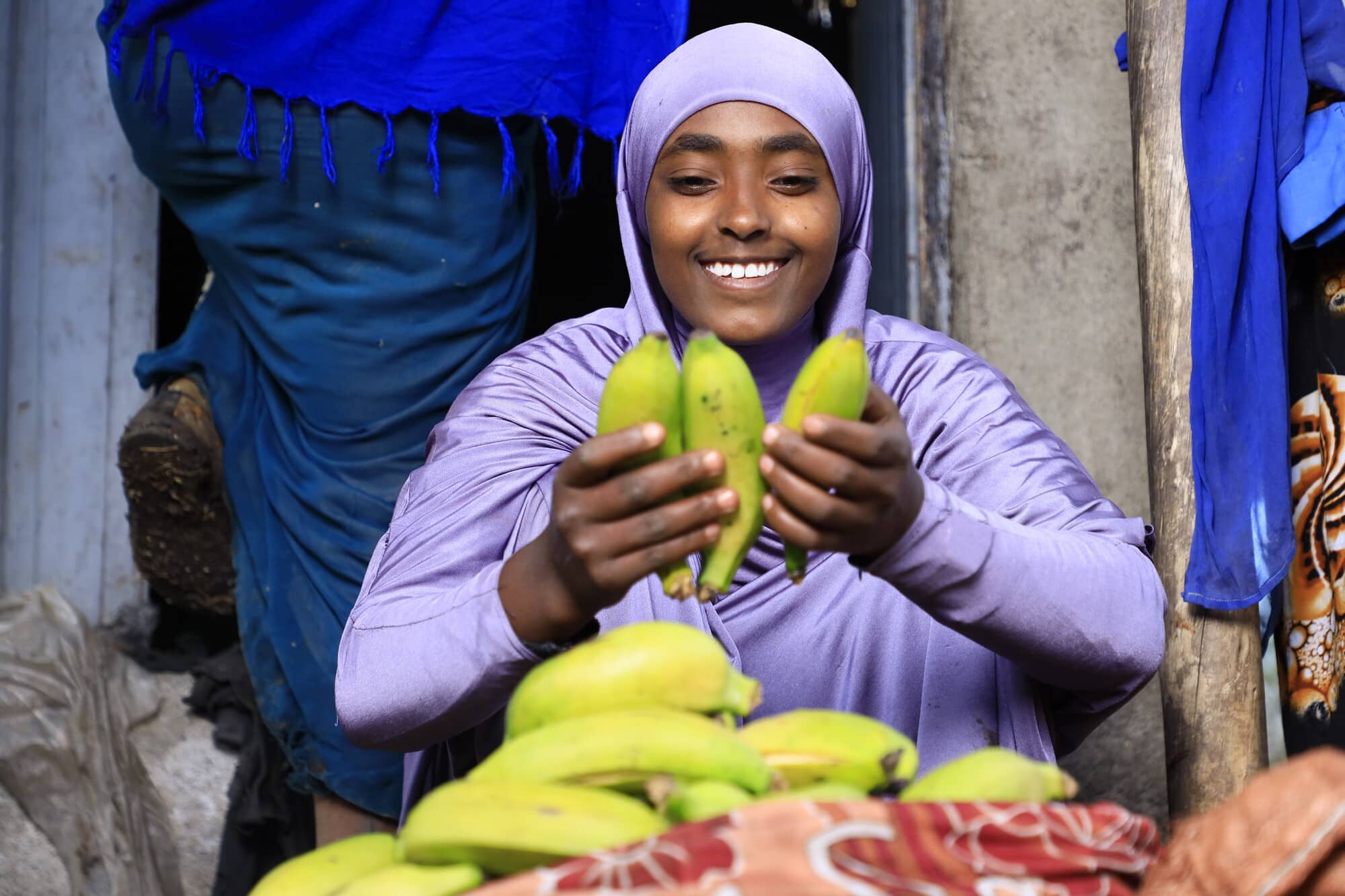
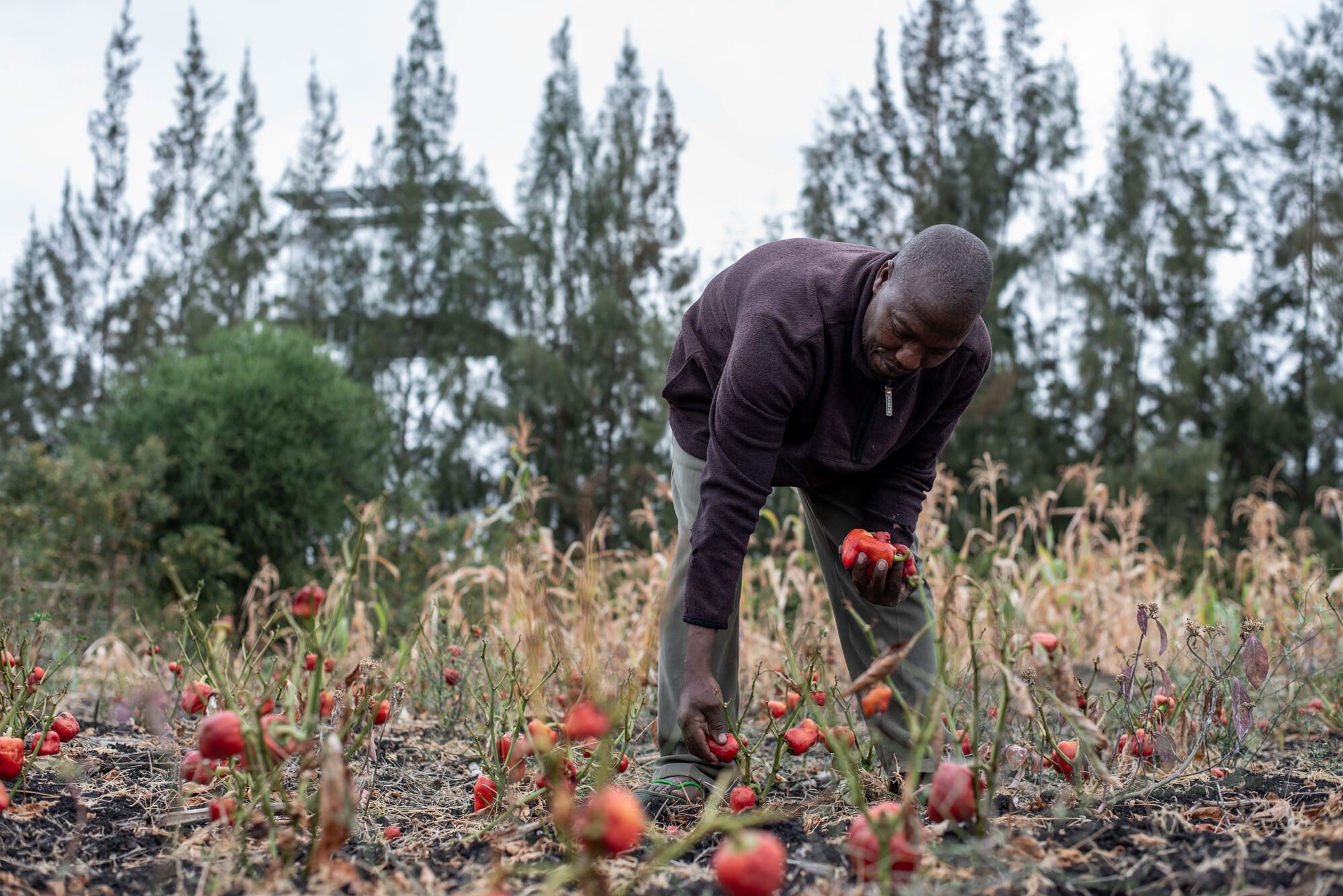
Many smallholder farmers use recycled seeds that offer little chance of growing into a healthy harvest of diverse crops.
Relying on single crops means farmers cannot benefit from a balanced diet and are more vulnerable to market fluctuations and price instability.
Poor storage facilities are common and result in post-harvest losses. Crops stored in poorly constructed warehouses are eaten by pests, while fungal infections ruin harvests when the grain stored is not properly dried.
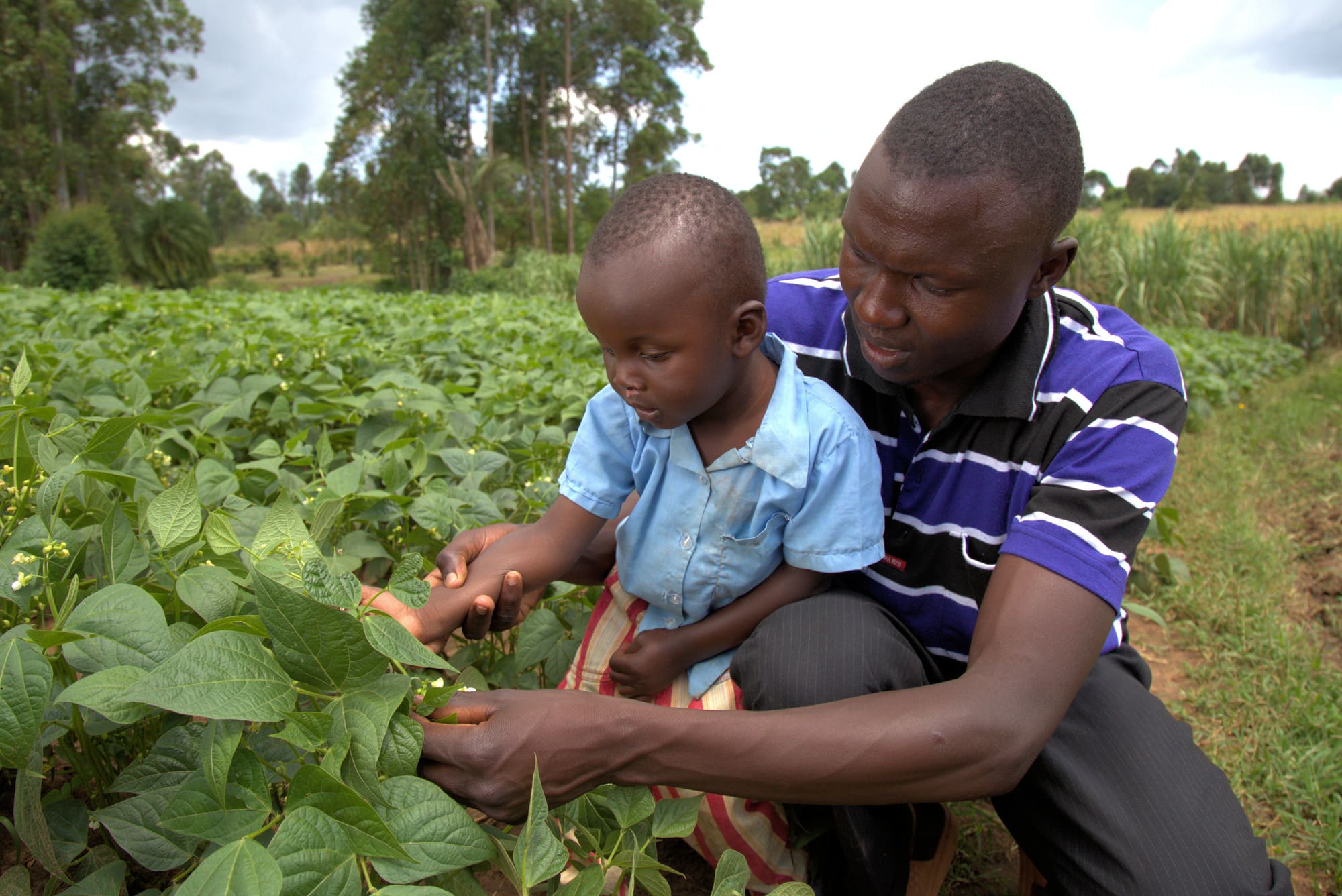
The opportunity
Sustainable agriculture practices such as growing diverse crops alongside rearing livestock significantly reduces the risk of crop failure. If one crop is affected, families can still maintain a steady food supply.
Growing multiple crops together can result in higher overall yields compared to monoculture, as different crops can utilise resources more efficiently, and they provide different nutritional value.
Farmers can supply a wider range of essential nutrients to their families, and whole communities too, combatting malnutrition and boosting people’s health.
Moreover, good storage facilities cut food losses. With extra produce, farmers can access wider markets, feed more people, get better prices and boost their incomes.

The outcome
Investing in food security and nutrition for farmers in eastern Africa means a better, more stable food supply for all.
When farmers are food secure, they have consistent incomes and are less likely to face poverty. They can purchase better inputs, adopt new technologies and continue to grow more food.
The planet’s natural resources benefit too. Building smallholders’ resilience to climate change is essential to increasing their food security, and techniques like improving soil health and incorporating agroforestry will protect our precious ecosystems and help to create a sustainable agricultural system.
Increasing farmers’ food security and nutrition is vital to create a sustainable, healthy and resilient future for eastern Africa.
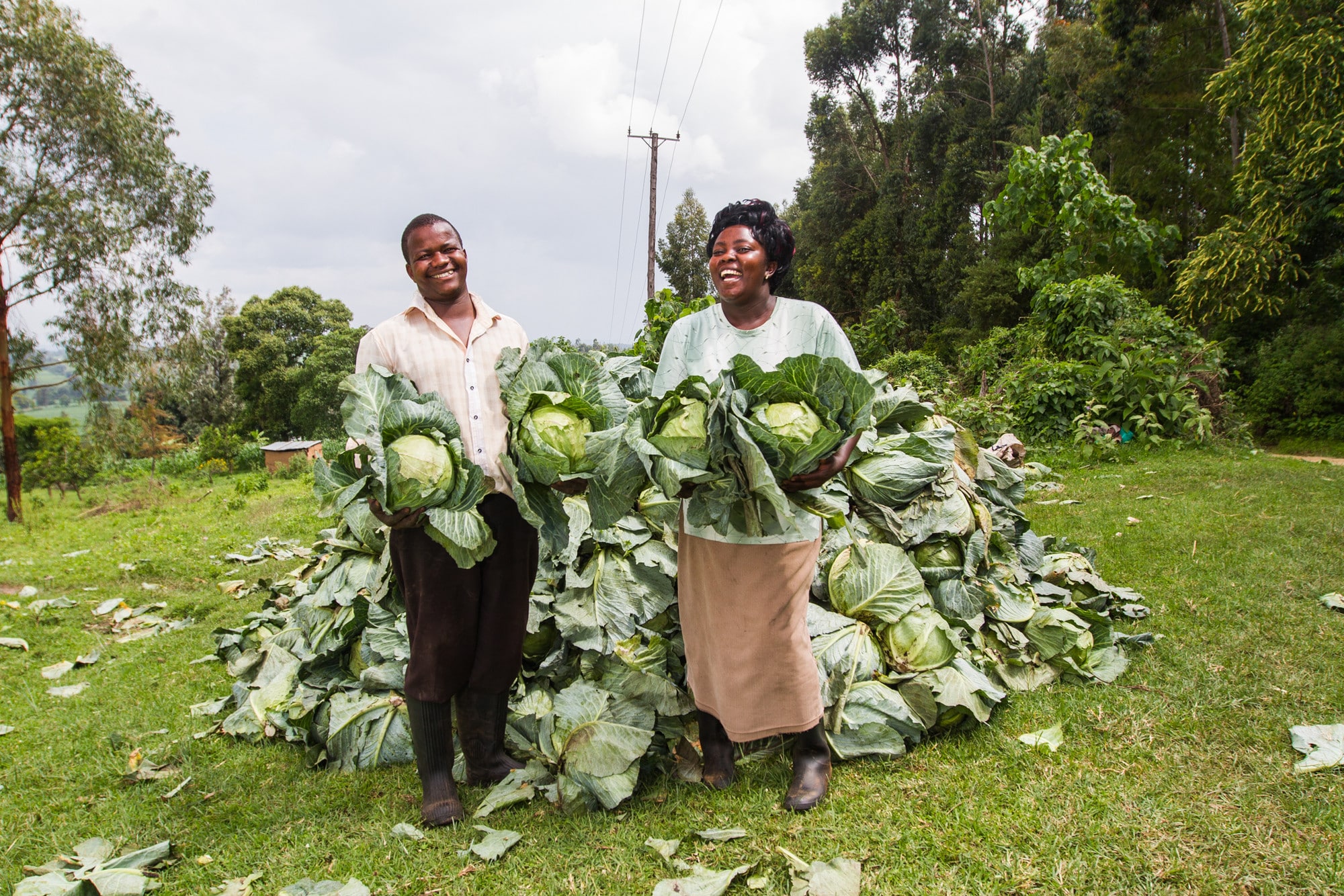
How we increase food security and nutrition
- We encourage farmers to grow high-value, nutritious crops and set up kitchen gardens.
- We train farmers in sustainable farming methods and nutrition-sensitive skills.
- We help to build farmers’ resilience to climate change through climate-smart and regenerative agriculture.
- We put smallholder farmers in the value chain and provide them with better access to markets.
- We deliver training in post-harvest handling measures like using waterproof sacks and moisture-controlled warehouses.
- We provide farmers with access to high-quality seeds that can withstand dry conditions.
- We promote fish farming, which helps increase access to an affordable source of protein.
- We support women to rear goats and poultry, meaning they have access to ongoing supplies of milk and eggs.
- We offer training in the importance of balanced diets to children’s growth and development.
Watch
Related resources
Country
Uganda
Key focus areas
Empower women
Increase food security and nutrition
Women and children’s nutrition in Uganda
Farm Africa’s Livestock for Livelihoods project helped Ugandan and Ethiopian pastoralist women set up sustainable, small-scale goat-rearing enterprises. This four-page booklet outlines how the project helped to improve the nutrition of women and young children in Karamoja, Uganda. Wasting in young children (0-59 months), infant and young child minimum dietary (IYCF-MDD) score, and Minimum Dietary Diversity for women (MDD-W) all showed positive trends and improvement during the project life cycle.
Download (1.19mb)
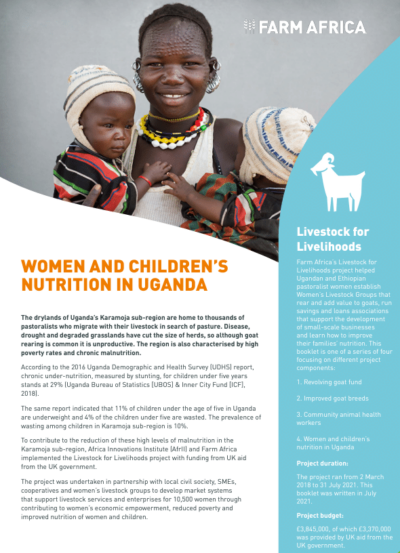
Country
Uganda
Key focus areas
Empower women
Increase food security and nutrition
Country
Ethiopia
Key focus areas
Empower women
Increase food security and nutrition
Impact of increased women’s incomes on nutrition
Farm Africa’s Livestock for Livelihoods project helped Ugandan and Ethiopian pastoralist women set up sustainable, small-scale goat-rearing enterprises. This booklet highlights how Farm Africa improved 10,000 women’s access to credit facilities and incomes by adding value to livestock products and opening up improved opportunities for sales.
Download (2.29mb)
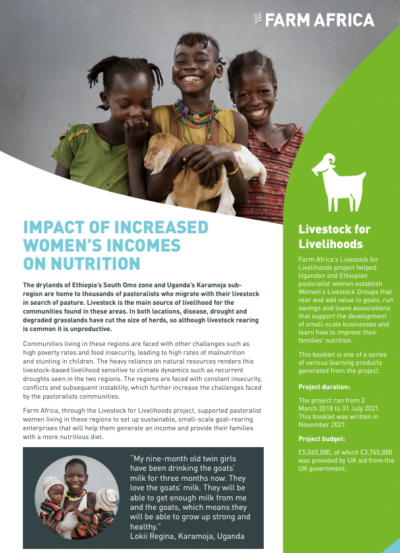
Country
Ethiopia
Key focus areas
Empower women
Increase food security and nutrition
Country
Ethiopia
Key focus areas
Empower women
Increase food security and nutrition
Increase incomes
Household socioeconomic status and women and children’s dietary diversity
Farm Africa’s Livestock for Livelihoods project helped Ugandan and Ethiopian pastoralist women set up sustainable, small-scale goat-rearing enterprises. This booklet examines the factors that improve dietary diversity in women and children, including women’s economic empowerment, production of food crops and the size of livestock herds.
Download (7.2mb)
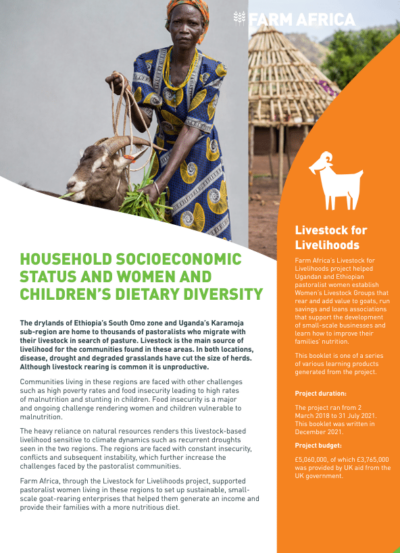
Country
Ethiopia
Key focus areas
Empower women
Increase food security and nutrition
Increase incomes
Country
Ethiopia
Key focus areas
Boost productivity
Connect farmers to markets
Quality Declared Seed
A report on various seed systems in eastern Africa and how a Quality Declared Seed (QDS) system can help farmers increase their yields and productivity, with case studies from Ethiopia, Tanzania and Uganda.
Download (2.59mb)
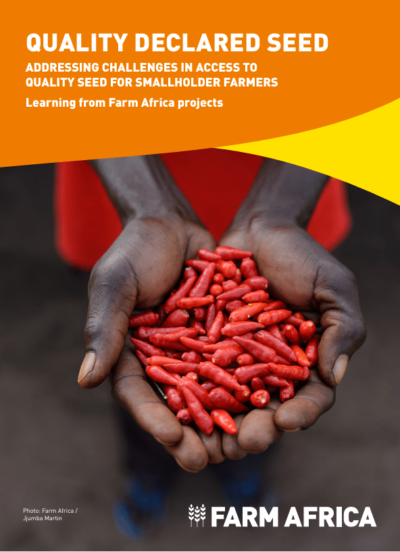
Country
Ethiopia
Key focus areas
Boost productivity
Connect farmers to markets



